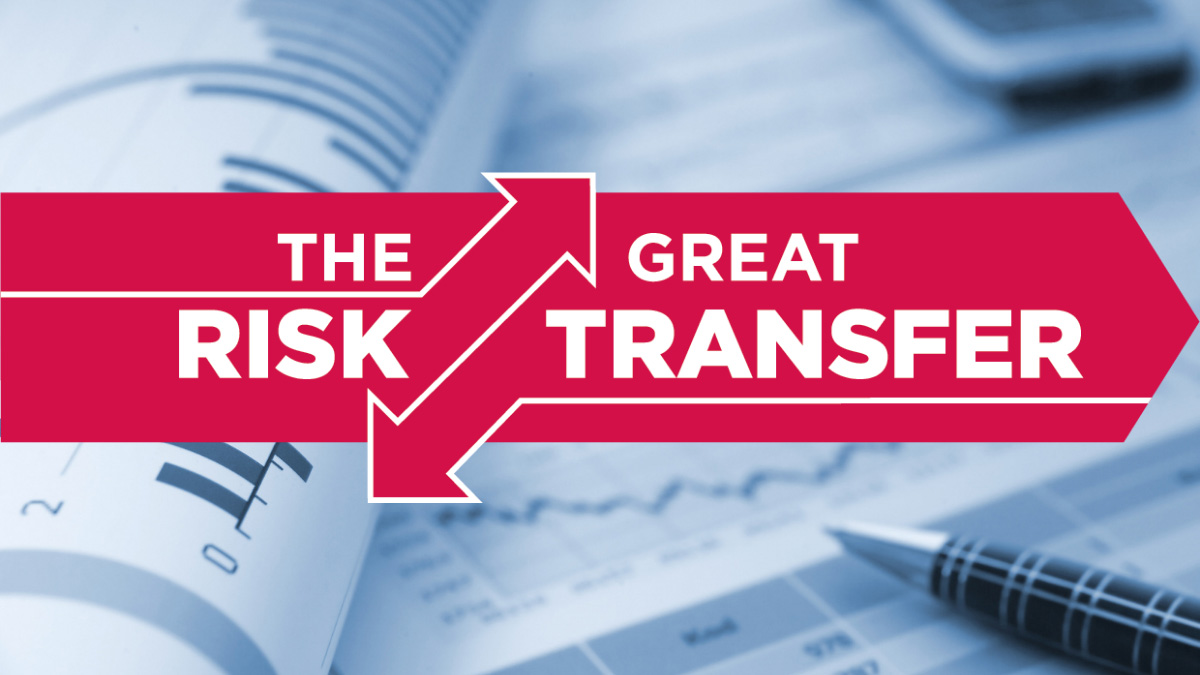 In a blog published in April we described the tremendous practical potential of some of the recommendations from our Great Risk Transfer (GRT) campaign, imagining a future financial landscape in which they had been implemented and were helping individuals to manage their risks in pensions and insurance.
In a blog published in April we described the tremendous practical potential of some of the recommendations from our Great Risk Transfer (GRT) campaign, imagining a future financial landscape in which they had been implemented and were helping individuals to manage their risks in pensions and insurance.
We are still a long way off from that position, but it is now a year since we had the excitement of the launch event for the GRT recommendations report, so it’s a good time to look back at what we have achieved so far and the challenges ahead – not least in such a difficult time for many as they struggle to manage their finances. It has been a busy year indeed, in which we have focused on developing the campaign across several fronts at the same time.
In April 2021 the IFoA worked with the think tank Demos to deliver a virtual launch event for the Great Risk Transfer final report. The event attracted nearly 300 attendees. The panel included Stephen Timms MP, former Chief Secretary to the Treasury, Vicky Pryce, formerly Head of the Government Economic Service, and John Taylor, an IFoA Past President.
The following month we worked with the David Hume Institute (DHI) on a successful complementary launch event in Scotland.
After the launch, the IFoA and Demos continued their collaboration to deliver two roundtables in June 2021. These explored the report’s recommendations in depth, with a view to begin thinking about implementing solutions. The first covered pensions, including Collective Defined Contributions (CDCs), and the second focused on helping consumers to negotiate risk barriers.
GRT has remained prominent on the list of policy issues that resonate with our members, and its influence also extends beyond the IFoA in terms of public interest. For example, in March 2022 Leah Evans, Chair of the IFoA Pensions Board, gave evidence to the House of Commons Work and Pensions Committee, examining the impact of the Government’s Pension Freedoms reforms five years on. She described the GRT campaign in detail and referred to several specific recommendations, including Collective Defined Contribution pensions (CDCs), decumulation pathways and Pension Wise.
The IFoA is supporting a research project by the DHI into public attitudes to risk, surveying a diverse range of people about which aspects of financial risk they see as the most important, how they address these and what barriers they face. The DHI has publicly acknowledged the influence of the GRT campaign on this work, with its focus on placing the responsibility for certain financial risks with institutions rather than individuals.
The GRT report recommended research into Government-supported reinsurance schemes such as Flood Re, to see if this approach could be applied to other examples where groups in society cannot access affordable cover because of factors they cannot realistically control (such as where a policyholder lives, pre-existing medical conditions, or pandemics). The IFoA followed up on this recommendation by commissioning research from an economics consultancy on the advantages and disadvantages of Re schemes, alternative approaches, and how actuaries could have a particular role to play. Members have had the opportunity to sense-check initial conclusions.
We are aiming to share results from both of these projects later in 2022.
The GRT report recommends government action to make it easier for employers to see Collective Defined Contribution schemes as a practical option. To develop this case the IFoA has joined the CDC Forum led by the Royal Society for the Arts. IFoA member Simon Eagle, who chairs our working party on CDCs, gave evidence to the House of Commons Work and Pensions Select Committee last October. A major consultation from the Department for Work and Pensions is expected in autumn 2022, and this will be an opportunity for IFoA members to contribute to the detailed design principles for future CDC schemes. We will also contribute insights from financial modelling carried out under a joint IFoA-Heriot Watt research project.
The GRT report recommended making defaults for drawing down pension pots (‘decumulation pathways’) available to everyone at retirement. Over the past year we have been strengthening our evidence base to support this. For example, we commissioned a YouGov survey which provided insights into the need for more people to take regulated advice as they approach retirement. The Pension Decumulation Pathways Working Party has studied the scope for products which would offer an alternative to drawdown or annuities by combining a lifetime income with some flexible access.
The GRT report also highlighted a concern that where individuals are on long-term sickness benefits, but the insurer then offers them a lump sum instead, there is currently no regulation or guidance to ensure that this offer is made in an appropriate way (unlike for pension incentive offers). We raised this directly with the FCA in January 2022. They supported an industry-based approach to address the issue and we aim to ensure that actuarial expertise will feed into this initiative.
The GRT campaign began by drawing attention to the trend for transfers of risk from institutions well-placed to handle those risks to individuals who are often unable to do so. We identified a range of solutions to different aspects of this problem. One year on, often working in collaboration with other bodies, we are making real progress in addressing them.